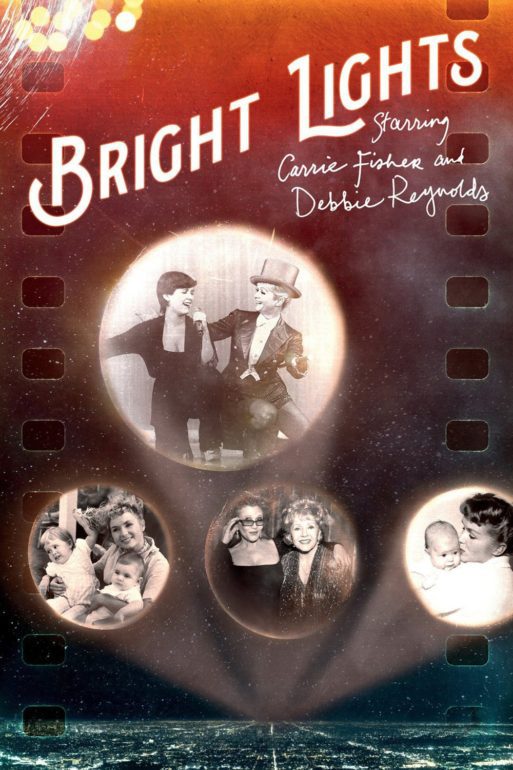 “Bright Lights: Starring Carrie Fisher and Debbie Reynolds” wasn’t meant to be a postmortem tribute. Directors Alexis Bloom and Fisher Stevens originally wanted the documentary to center around the quirky, sometimes volatile, relationship between actress Debbie Reynolds and her equally famous daughter, Carrie Fisher. It was supposed to be a lighthearted glimpse into the unusual lives of a star-studded Hollywood family.
“Bright Lights: Starring Carrie Fisher and Debbie Reynolds” wasn’t meant to be a postmortem tribute. Directors Alexis Bloom and Fisher Stevens originally wanted the documentary to center around the quirky, sometimes volatile, relationship between actress Debbie Reynolds and her equally famous daughter, Carrie Fisher. It was supposed to be a lighthearted glimpse into the unusual lives of a star-studded Hollywood family.
Everything changed in December. Both Carrie Fisher and Debbie Reynolds died, just one day apart, on December 27 and December 28, respectively. Their deaths came as a shock to their loved ones and their fans. Although Reynolds had been struggling with some health issues in recent years, she continued to schedule performances and award-show appearances. Similarly, everyone assumed Fisher was in good health. Nevertheless, she had a heart attack on a flight from London to Los Angeles. She died days later at a hospital.
Shortly after their deaths, the “Bright Lights” directors decided to release their film earlier than expected, and to edit it into a loving tribute to both women. The documentary is a perfect memorial piece. It captures Reynolds and Fisher at their best and their worst, allowing the audience rare insight into the intimate details of their lives.

Credit: Wikimedia.org
We see the regal Debbie Reynolds put on a poised smile for the cameras, hamming it up for her audience. We also see her struggle with occasional fainting spells and the cumulative effects of old age. As Carrie Fisher says in the film, “She’ll forget that she’s not 35.” These scenes hit close to home for anyone who has experienced the turmoil of aging, or who has witnessed a loved one slowly lose autonomy as they get older.
Carrie Fisher’s bold personality is also on full display in the film. For many years, Fisher had been open about her bipolar disorder. (Her ashes are in an urn shaped like a Prozac pill.) In the documentary, we see her fast-paced manic state (which she nicknamed “Roy”) as well as her gloomy episodes (nicknamed “Pam”).
What the documentary really shows is how much Fisher and Reynolds leaned on one another for support. Fisher had an almost parental concern for her mother. Whenever Reynolds was feeling under the weather, Fisher would dote on her with extreme care. In one scene, Reynolds insists on attending a Life Achievement award ceremony against the wishes of her doctors. We then see Fisher in tears backstage as she tries to keep her mother safe and comfortable. Their tenderness toward one another is palpable.

Credit: Wikimedia.org
They had an unusually close relationship with one another. Fisher’s house was next door to her mother’s, separated by a winding garden. In one scene, Fisher walks to her mother’s house, and sums up their relationship as, “I always come to her.”
Yet we see the same level of unconditional love extending from Reynolds to her daughter. The filmmakers captured the twinkle in their eyes when they looked at each other, showing us that neither woman would be complete without the other.
This fact is mirrored in their deaths. After Fisher’s fatal heart attack, family members confirmed that Debbie Reynolds was beyond distraught. Not only had she lost her daughter, she had lost her best friend. She reportedly told her son, Todd Fisher, “I want to be with Carrie.” Shortly thereafter, Reynolds suffered a stroke and died hours later at a hospital. Todd told journalists that his mother “didn’t want to leave Carrie and did not want her to be alone.”
“Bright Lights” beautifully captures this close, complex mother-daughter relationship. Although the two were sometimes at odds with each other, they ultimately shared a deep, unwavering love.
This documentary reminds the audience how short and precious life is, and that there is still plenty of humor to find in the darkness. It’s a touching tribute not only to two Hollywood icons, but to the intense bond that forms between mother and daughter. “Bright Lights” reminds us to hug our loved ones a little more closely today, since none of us are promised tomorrow.

 ”Bright Lights: Starring Carrie Fisher and Debbie Reynolds” by Alexis Bloom and Fisher Stevens
”Bright Lights: Starring Carrie Fisher and Debbie Reynolds” by Alexis Bloom and Fisher Stevens


 Recovering Cremation Remains After the Los Angeles Fires
Recovering Cremation Remains After the Los Angeles Fires
 “As Tears Go By” by Marianne Faithfull
“As Tears Go By” by Marianne Faithfull















